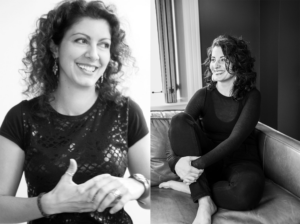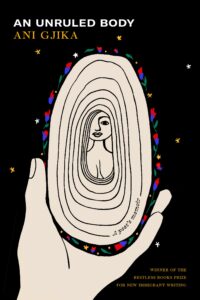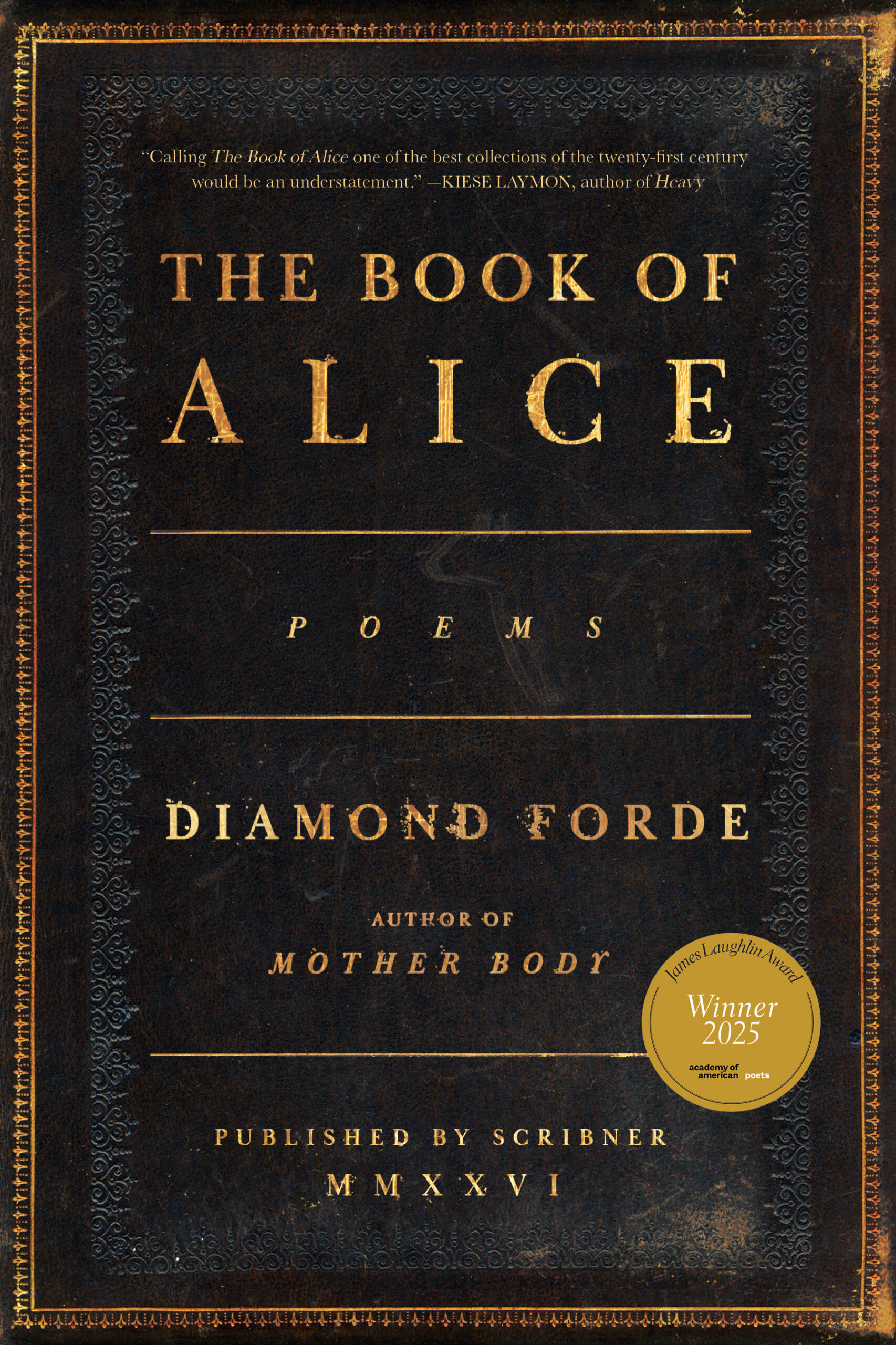
ANI GJIKA’S An Unruled Body won the 2021 Restless Books Prize for New Immigrant Writing and has been longlisted for the 2024 Mass Book Awards in Nonfiction. In this interview, Ani Gjika and poet and translator RACHEL MORGENSTERN-CLARREN delve into the profound influence of language and literature, particularly in the context of women’s liberation. They explore the pivotal role of books and language in empowering women, and shed light on the transformative and essential nature of literary expression in combating censorship, serving as a form of healing after traumatic experiences, and offering a new language to write about and confront the past.
Please note this interview references childhood sexual assault.
Rachel Morgenstern-Clarren: An Unruled Body is filled with strong-willed women enduring difficult circumstances, for whom books are a form of resistance and escape. There’s your grandmother, Meropi, who finds freedom from the oppression of Communist Albania as a secret Seventh-Day Adventist, reading the Bible behind closed doors. There’s your mother, a talented poet, who makes ends meet in the U.S. as a cleaner, yet manages to publish three more collections of poetry. And you write about how pursuing your MFA in poetry was, at some level, your way of getting out of an unhappy marriage and finding your own voice again. How do you see language as a tool for liberation for women to break out of society’s prescribed roles (epitomized by the Albanian myth of Rozafa, the self-sacrificing wife and mother)?
Ani Gjika: I feel that language is a portal; it opens up the imagination. As soon as I say bird for example, I already picture a type of bird in my mind, the way it flies or where it perches, where I may have seen it, how I feel about it, the sounds it makes, whether I identify with it or not. Every word, as soon as I think or utter it, I automatically begin making associations. I’m thinking of Margaret Atwood, who said “A word after a word after a word is power.” While that may relate more to the process of writing—being hard at work, not giving up until the story is completed—it also speaks to this power inherent in language, which anybody can tap into when told not to read certain books, not to speak or write about certain things. But ironically, at a time of censorship, people find creative ways to exercise freedom. I also think that, at its most useful, language helps us name our experiences, a process through which we can free ourselves. Even Rozafa, by naming parts of her body she wants the men to leave unburied, regains agency at the very end of her life.
In order to tell the story of my childhood, I must distort the narrative—reality itself was distorted.”
RMC: Your early years in Albania overlapped with the death of dictator Enver Hoxha and the fall of Communism: a period during which people were frequently jailed and often “disappeared.” Neighbors reported each other to the State, girls were kidnapped and sold into human trafficking. You write: “In order to tell the story of my childhood, I must distort the narrative—reality itself was distorted. That was the nature of language at the time. One piece of truth on the radio, another on the street, another behind closed doors…” Can you talk more about the effect of that compartmentalization on your use of language? Is English segmented in the same way for you? If so, how does English change depending on place or environment?
AG: That’s a brilliant question. When I was growing up, there was one type of language on TV I was aware of because it bored me and I couldn’t stand it—dry, formal, authoritative, patronizing, prescriptive, commanding…and a different language, the one my grandmother used at home when she would tell me stories from the Old Testament, or when my parents would read me Greek and Albanian myths which I couldn’t get enough of—the language of details, possibilities, open-endings, magic, bravery, sacrifice, poetry, love. I became sensitive to these differences within language when I was young, and have paid attention to them since. It’s almost to the point of obsession sometimes, as when I’m translating, wanting to make sure the language I’ve chosen conveys the right effect on the reader as the original text. But I don’t find that English is compartmentalized for me. English was an adopted language at a time when I was resisting my own mother tongue. So in that sense, English has been a language within which I have felt free.
RMC: Did you ever try writing about Albania in your native tongue, or were you only able to gain enough distance from it with English?
AG: I tried once, in my late twenties, to write poems in Albanian but they sounded performed, not real, so I stopped. I think in English, and I imagine one writes in the language one thinks in freely. Maybe one day I might think more freely in Albanian if I spend time there. And maybe then I might write something in Albanian.
English was an adopted language at a time when I was resisting my own mother tongue. So in that sense, English has been a language within which I have felt free.”
RMC: As Albania begins to open up to the world after the fall of the Communist regime, it leaves girls and women particularly vulnerable, as young men “are hungry to align themselves with what they perceive as power…They hang together in packs, harassing girls and women.” This harassment is described in euphemistic language: “The boys teased the girls,” the boys “hunt the girls,” and “he placed his eye on her.” You describe being raped at age twelve, on your way to school, by a boy barely older than you were—a story so traumatic, you weren’t able to find the words for it until twenty years later in English. Has the Albanian language evolved since then, to address the rape culture you grew up with, or are you only able to name that violence in your second language? Did Albania ever have a version of the MeToo movement?
AG: I’m writing about Albania in the 90s, but rape culture and violence against women was not an isolated phenomenon in Albania back then. But what still happens there, across the Balkans, in America, and the world at large, is a public health issue. There has finally been a MeToo movement in Albania in the last three years, and a little longer in other countries in the Balkans. Women and men are speaking up, but not enough is being done. People don’t realize that the person who has been violated alone can name what happened. This relates to your first question about language as a tool for liberation. It’s important to distinguish who uses language to name the thing itself and who uses it to rename, diminish, and dilute meaning. In certain regions, law enforcement may not even have a law against an act of violence because it is not perceived as violent enough. But if the person did not ask for it, that’s the origin of violence and it absolutely needs to be addressed. That’s what I hope, in part, this book brings more awareness to.

RMC: One of the most surprising parts of your memoir is the tender, fearless way you describe your relationship with your body, self-pleasure, and your sexual awakening as an adult. You write, “Unlike so many things in my life I have arrived at late, I have always mothered my desire.” Can you talk about how your relationship with physical intimacy evolved, and how language influenced that evolution?
AG: I had a healthy relationship with and understanding of desire since I was a child as described in the book. But twice in my life, as an adolescent in a country wrestling with rape culture, and later in a marriage where I wasn’t happy, I lost agency. It was through reading about trauma and speaking to people that I’ve come to understand that through trauma, we lose agency, and when we lose agency we also experience a disconnect from language, a rupture in it. I think this rupture in language, something that happens at a cognitive level, causes a rupture, or a distrust at the physical level, how you read your own body’s signals— so it becomes complicated to build authentic relationships, authentic physical intimacy. Gradually, by taking the time to name one’s experiences, one begins to understand that physical intimacy is not something owed, but something you choose to give and participate in when you want to. You gain that agency back, and you start to trust your own body and language again.
It’s important to distinguish who uses language to name the thing itself and who uses it to rename, diminish, and dilute meaning.”
RMC: This is your first published work of prose, but you are also an award-winning poet and translator. There are excerpts of your poetry sprinkled throughout the text. How did the idea of blending the two genres come about? How do you see the poems complimenting and/or complicating different parts of the narrative?
AG: It organically happened when I wrote a rough draft in 2015, except back then, I had included whole poems that broke up the prose where I felt that they added another layer to the story I was telling. I went through adding and removing many poems through the years and various revisions, but working with my editor, Jennifer Alise Drew, she asked me to go through my poems and see what fragments I thought I could excerpt. She encouraged me to select pieces that speak to the book in interesting ways, only then did it crystallize for me what I needed to do. I did this at a time when both my poetry book and my memoir, as full manuscripts, were completed, so I could carry both works in my head as I went through the poems to parse and pick lines. I chose lines that would invite the reader to open another window into the story, take a closer look at something, and look at an idea or a character from another angle. I wanted to provide further space to let the reader in on another possibility of truth. I picked other lines simply because they emphasize what the prose is saying or, because the prose confirms what the younger writer once already knew. So, in that sense, I collaged text in this way to talk to younger Ani and anyone like her who might be reading, to tell them: Look, you already know this, don’t forget this. You have a mouth.
Albanian-born writer Ani Gjika is the author and literary translator of eight books and chapbooks of poetry, among them Bread on Running Waters (Fenway Press, 2013), a finalist for the 2011 Anthony Hecht Poetry Prize and, most recently, of the memoir An Unruled Body, winner of the 2021 Restless Books’ New Immigrant Writing Prize. Her translation from the Albanian of Luljeta Lleshanaku’s Negative Space (New Directions and Bloodaxe Books, 2018) won an English PEN Award and was shortlisted for the International Griffin Poetry Prize, PEN America Award, and Best Translated Book Award. She is a graduate of Boston University’s MFA program where she was a 2011 Robert Pinsky Global fellow, and GrubStreet’s Memoir Incubator program, where she was a 2019 Pauline Scheer Fellow. Having taught creative writing at various universities in the U.S. and Thailand, Gjika currently teaches English as a Second Language at Framingham High School in Massachusetts.
Rachel Morgenstern-Clarren is a poet and translator based in Montreal. Her work has been honored with a Hopwood Award, an Academy of American Poets Prize, and a Fulbright Fellowship to Brazil, recently appearing or forthcoming in Alaska Quarterly Review, Asymptote, and Calyx. She holds an MFA in poetry and literary translation from Columbia University. For more, visit www.rachelmorgensternclarren.com.




